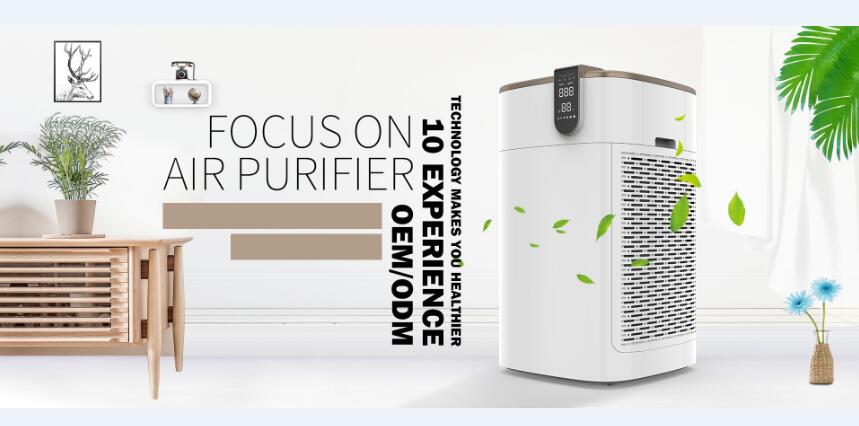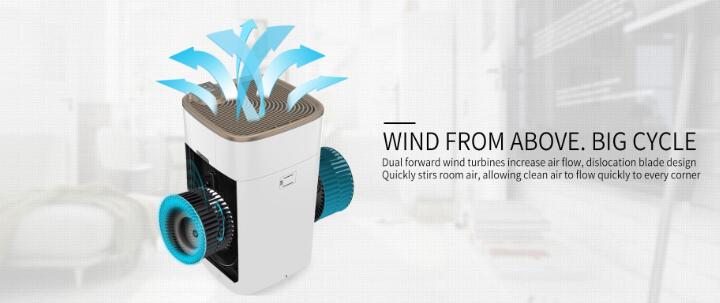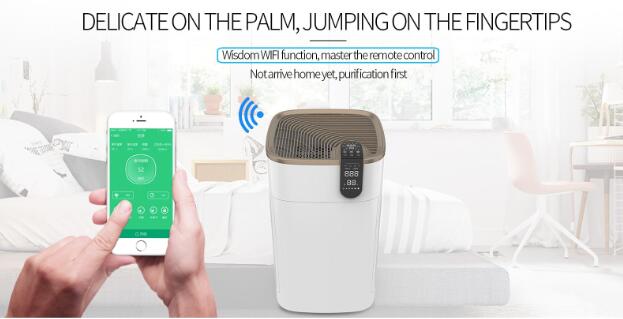Ever wonder how air purifiers work?
Experts weigh in on the efficacy of air purifiers and what to consider before buying one in 2021.
While some businesses are reopening to the public, the persistent spread of COVID-19 is challenging people to think about keeping their homes cleaner — one of the ways to do so being an air purifier. Some companies have gone so far as to claim their air purifiers can stop some airborne diseases in their tracks. But what are air purifiers, anyway? Are they different than air cleaners or filters? Can they help to combat the coronavirus? And should you consider getting one otherwise? We consulted MDs and experts about all of it. Here’s what you need to know about air purifiers and some tips for figuring out which air purifier is best for you.
Air purifiers are designed to remove indoor air pollution which can be made up of small particles in the air. Indoor air pollution primarily comes from cooking, automobile emissions, dust and fires, and can irritate the lungs or trigger allergic reactions, explained Kenneth Mendez, president of the nonprofit Asthma and Allergy Foundation of America. And according to the Environmental Protection Agency, the air inside our homes can be more polluted than the air outside.
“We take about 20,000 breaths each day and spend 90 percent of our time indoors,” Mendez noted. And with all this newfound time spent at home, reducing exposure to particles that can trigger things like allergies and asthma symptoms is important. “If you live in an area with high outdoor pollution, like a metropolitan city, it’s essential to monitor the air quality in your home,” he added.
Air purifiers are often conflated with air filters, but they differ slightly, said John McKeon, MD and CEO of Allergy Standards — an organization that certifies products as “asthmas and allergy friendly,” among other things.
Air filters trap and collect dirt and debris in a filter, and are commonly found in heating and ventilation systems. They can significantly reduce the amount of pollutants, allergens and dust in your home.
Air cleaners remove more particulate from the air than the average filter, said McKeon. The device consists of a fan to draw air in and a filter to remove particulate from that air. While air cleaners often include filters, they are overall more robust in cleaning the air than air filters. Regardless, most companies will use the terms air cleaner and air purifier interchangeably.
Air purifiers use a process to “deactivate” airborne toxins like pathogens, McKeon explained. Some purifiers use ultraviolet light sterilization to kill mold and bacteria while others use an electrostatic filter to draw particles to metal plates. Most air purifiers rely on a combination to trap as many particles, gases and bacteria as possible.
While air purifiers can’t protect you from coronavirus, there are still plenty of benefits to having one in your home. If you already experience irritation from dust or allergens, or have asthma, allergies or other respiratory conditions, it may be smart to invest in an air purifier, says Josh Davidson, MD, an allergy and immunology specialist in California.
“We are all trying to do what we can right now. It’s one of those factors that can only help, given everything that’s happening,” he said. “Don’t run out and buy air purifiers in mass and hoard them like toilet paper, but consider it, especially if you are at higher risk.”
Air Purifier models for your reference, please check www.olansi.net
Or contact Joanna Lin
Wechat/Mobile : +86 15016043585
Email: sales01@olansgz.com




